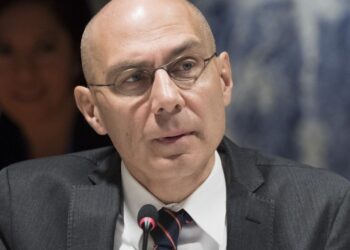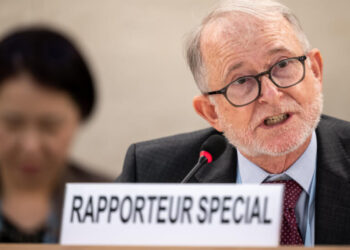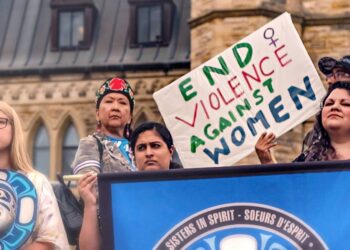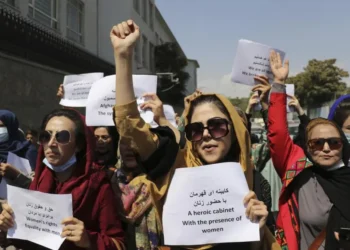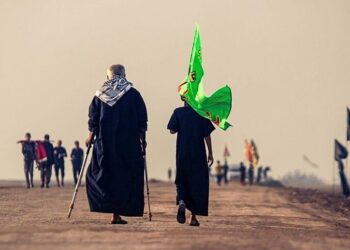Human Lives Human Rights: The United Nations Third Committee approved a draft resolution on the human rights situation in Iran, expressing concern at the rising death penalty in the country.
The resolution was approved by 80 votes in favor to 28 against, with 68 abstentions on Nov. 16. The committee, which deals with human rights, humanitarian affairs and social matters, meets every year in early October and aims to finish its work by the end of November.
A court in Tehran on sentenced three protesters taking the total number of death penalties to five, accused of “street warfare”, “drawing cold weapons”, “damaging public properties”, “setting fire to government buildings” and “disturbing public order and peace, assembly and collusion to commit crimes against national security, war and corruption in the land.”
These sentences were issued in a situation where several countries and international organizations, including Canada, Germany and the United Nations, have asked the Iranian government to refrain from issuing death sentences to protesters in recent days.
However, the spokesman of the judiciary of the Islamic Republic emphasized that the sentences issued against the detainees “must be a lesson and a deterrent”.
Volker Türk, United Nations High Commissioner for Human Rights, speaking at a special session of the Human Rights Council on the deteriorating human rights situation in Iran, called on Iranian authorities to stop using violence against the protesters, release all those arrested for protesting, and impose a moratorium on the death penalty.
The resolution was proposed by the Canadian government to the Third committee. The British representative in the United Nations General Assembly, while supporting this resolution, described the human rights situation in Iran as deteriorating.
He stated: “Two months ago, we witnessed the heartbreaking death of Mahsa Amini, which reminds us of the shocking reality of women’s oppression in Iran. We deplore the violent suppression of women’s rights and the enforcement of the mandatory hijab chastity law by the so-called morality police in Iran (Gashte Ershad).
It should be noted that the resolutions of the General Assembly, unlike the resolutions of the Security Council, have an advisory aspect. But they can potentially have a positive or negative political, moral and humanitarian impact on the global public opinion for their target countries.
These resolutions can lead to isolation, passivity and incitement of global public opinion. For example, recently, 128 prominent women of the world have demanded the expulsion of Iran from the Women’s Commission of the United Nations Economic and Social Council.
On the other hand, in front of the Iranian delegation in the General Assembly, the United Nations condemned this resolution. Earlier, the UN Human Rights Council announced that it will hold an emergency meeting on the situation in Iran on December 3. The decision to hold this meeting was made after the request of the ambassadors of Germany and Iceland at the United Nations office in Geneva.
It should also be noted that such resolutions can potentially become the basis for examining the case under study in other UN bodies, such as the Human Rights Council and the Security Council. This resolution is the factor of creating legitimacy for examining the case in organizations such as the Security Council, which is the competent pillar for maintaining international peace and security.
What can cause Iran’s isolation to escalate and send the case to the Security Council is the nuclear case, currently in an impasse. In this regard, the Board of Governors of the International Atomic Energy Agency, in a resolution passed with a directive tone, ordering Iran to cooperate urgently with the agency’s investigation into uranium traces found at three undeclared sites. Also, in this resolution, the Board of Governors has threatened that if Iran does not cooperate, it will refer Iran to the U.N. Security Council for not complying with its nuclear obligations.
Such a situation has isolated the Islamic Republic of Iran more and more in every aspect and more cases are being opened against Tehran in the UN bodies, especially in the Security Council.



